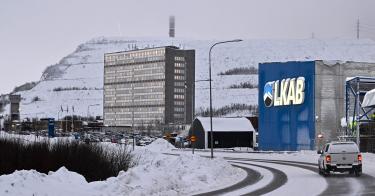James Jay Carafano

Experts have repeatedly urged Washington to address this critical national security vulnerability. A year ago, the Biden administration announced a new effort to address this problem, but the results are thus far underwhelming.
China only has around 36 percent of the world’s known rare earth reserves, but through a deliberate and methodical strategy, Beijing now controls more than 70 percent of the world’s extraction capability. Even more significantly, China commands nearly 90 percent of the world’s processing capacity.
Beijing’s industrial policy essentially pushed Western companies out of the rare earth mining and processing business in China. And it wasn’t just about profit. In1992, Deng Xiaoping, former general secretary of the Chinese Communist Party, declared:
The Middle East has its oil, China has rare earth: China’s rare earth deposits account for 80 percent of identified global reserves, you can compare the status of these reserves to that of oil in the Middle East: it is of extremely important strategic significance; we must be sure to handle the rare earth issue properly and make the fullest use of our country’s advantage in rare earth resources.
That is exactly what Beijing has done. During the 2010 Senkaku Islands crisis, Beijing significantly reduced the supply of REEs to Tokyo. There is no doubt that China would apply the same tactic again, what scholar Liza Tobin calls “brute force economics.” Chinese strategists have acknowledged as much in Chinese media.
The United States and other nations have contributed to the problem by undermining their own national interests. Western nations like the United States have hamstrung their ability to compete with excessive environmental regulations and onerous permitting requirements that make mining and processing extraordinarily difficult. Instead, we rely on what is extracted from countries that permit illegal mining, brutal child labor, destructive environmental practices, and simultaneous exploitation by China.
The issue has become a global problem with consequences too significant to neglect. Without question, the most serious implications of controlling REEs concern national security. Modern weapons cannot be built, repaired, maintained, and employed without them. As former senior Pentagon official Roger Zakheim warns of China’s domination of the REE market, “We've essentially ceded it to China, and that impacts everything from our F-35 fighter aircraft to the phones that we use every day in our lives.”
While the problem is widely recognized, the response has been anemic and inadequate. Rather than lead with aggressive policies to restore balance in the market and resilience in supply chains, the United States tinkers on the edges with industrial policies that are more for show than solutions.
For example, the Biden administration last year awarded a $35 million grant to MP Materials to process REEs at Mountain Pass, California—the only rare earth mine in the United States. But the company still sells its rare earth feedstock to China for advanced processing. This is because the vast majority of the REE refining capacity is in China. Similarly, the United States supported Australia’s Lynas Corporation in the mining and processing of rare earths, but this company still sources these from China.
Developing mining and processing facilities is inevitably time-consuming, but the current slow pace is unacceptable. More can be done to speed up the development of alternatives to Chinese-controlled companies.
Both U.S. private industry and the Department of Defense should stockpile at least a three- months supply of unprocessed, semi-processed, and processed REEs. The Pentagon has taken limited steps toward this, including an injection of $1 billion in funding from last year’s NDAA, but this is insufficient. The effort needs to be extended to civilian enterprises that are in the supply chain for critical defense systems.
Congress should move to ease federal mining regulations and reform the 1872 Mining Law. The Biden administration promised to do so last year, but more recently, it signaled new restrictions on mining. Federal and state regulatory policies should be updated to allow for additional mining production without compromising air and water quality standards. It would also help to reform outdated federal and state environmental statutes, including the National Environmental Policy Act, the Clean Water Act, and the Clean Air Act. The goal would be to eliminate redundant state regulatory barriers while maintaining common sense environmental standards.
Lawmakers should also commission a report that accounts for all federal lands that are subject to administrative withdrawal from critical mineral development. Federal land withdrawals may close a given area to mining. Congress must ensure this authority is not abused. Rather, lawmakers should press for awarding case-by-case contracts in an expedited manner to allow for mining in these areas and minimize the protracted timelines for permitting and bureaucratic malaise.
On the diplomatic front, Washington should work with allies—including Quad partners, Canada, Mexico, and those in South America, Africa, and Europe—to collectively diversify processing. Sweden’s LKAB recently discovered large amounts of REEs, but it could take a decade before those processed elements come to market. To facilitate international cooperation and “friend-shoring,” creating a “white CFIUS” to certify companies for involvement in rare-earth mining and refinement could work wonders. The goals of this instrument would be to “encourage market participation; allow the sharing of information on companies that should be excluded; and create incentives for international cooperation among businesses in allied countries on exploration, mining and metallurgical technologies.”
Finally, the administration should use Development Finance Corporation authorities more proactively and direct financial support toward critical mineral development and processing capabilities in allied and partner nations. This would include possible eligibility for domestic projects with dual-impact alongside supported projects in resource-rich developing countries.
No comments:
Post a Comment